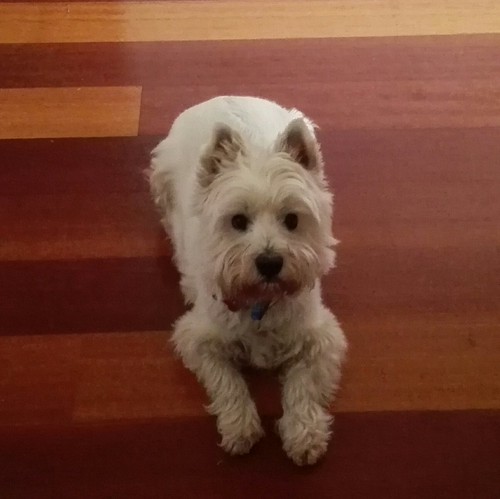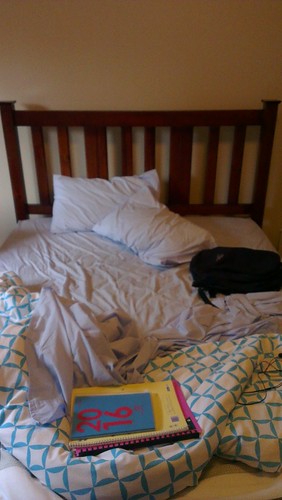Practising using the cameras in class was really enjoyable, but I feel we didn’t take it too serious. Working on a Friday afternoon with a fun group of people is the perfect recipe to muck about…which we did.
Month: March 2016
Coloured Hats
The Coloured Hats was an interesting exercise that reminded me of primary school. Donning a different coloured ‘hat’ to give appropriate feedback could definitely be a strong tool to correct and improve work, if implemented in the right way.
De Bono’s Six Thinking Hats provides a framework to help people think and discuss their work with clarity. It helps to direct their attention onto specific aspects, without being overly critical and dismissive of positive parts of their work.
I feel that is definitely can provide promising feedback and allow work to be polished, but it needs to be implemented properly. When used by our table groups and friends in the workshop, it was difficult to give negative feedback and to provide improvements. Instead of us all having individual hats, it seemed we all had the positive, yellow hat.
Project Brief 2
I feel this film beautifully captures my charm and youth. There are a significant number of parallels with the sequencing of the film and my own life, stemming from a difficult childhood and bumpy teenage years. The use of abstract imagery reflects a yearning to try something new, to attempt unique and exotic activities and, above all, to enjoy the time I have left.
The most successful part of the project brief is the still images. They help to capture the deeper meaning of the film. The weakest aspect is the overall film quality, but I shall endeavour to improve that in coming projects.
Having basically no experience editing or filming, I found the process of editing shots and trimming and cutting very, very tedious. It is difficult and very time-consuming. I can definitely appreciate the effort that is put in to large films and how tirelessly they work to provide a high quality product.
Project Brief 2 from Blair Conway on Vimeo.
It just sounds bad…
I never felt any discomfort at nails on a blackboard. Sometimes it sounds pretty good.
However, I absolutely hate the sound of metal forks or spoons scraping against teeth. Also the obnoxious, destructive sound that a spoon banging on plates makes. Like, it is disgusting. I almost want to cry when I hear the pounding and smashing of a shiny soup carrier on a beautiful ceramic food holder.
John Cage
Having heard of John Cage and the silent performance, I found it interesting to see the reaction of my friend’s who went in blind. They quietly chatted to themselves, unbeknownst that they were missing the performance.
I had never considered how different a reaction would be when it was first performed as compared to now. It seems that similar performances that are experimental, or avant-garde, can often labelled as as silly, or art for the sake of art. I found it interesting to hear that it would have inspired many different pieces of work since, especially how silence is used to create tension or suspense.
Gauntlett
I found the Gauntlett blog posts to be quite boring to read. There were some interesting arguments and suggestions, but it seemed to drag on and felt a little flat.
The peaks of media he talks about, in which there is a positive and creative sector (full of do-it-yourself media and inspiring media) and a negative sector (that combines data surveillance and ‘computerised capitalism’), was quite striking.
It was interesting to discuss how media has changed. From a broadcast sense, where media was shown to an audience with little participation and involvement, to a post-broadcast world, where an audience is more engaged and able to interact. People become users and consumers, rather than a mass of viewers.
The Dante Quartet
Prior to this week’s cinema studies screening I had never watched an experimental film (to my knowledge), though I was aware of a few, such as Empire by Andy Warhol. I found the films to be very hit or miss. I was very fond of The Dante Quartet, but found Ballet Mecanique to be tedious and dull.
As it was my favourite of the screening, I will focus on The Dante Quartet. I found Stan Brakhage’s film to feature some incredibly beautifully painted frames. The colours and the apparent textures of the images were visually stunning.
It is a strong example of avant-garde cinema and it certainly challenges how film can be perceived. Instead of capturing moments from life or in another traditional sense, the film simply captures paint applied directly onto the film. I found unexpected enjoyment from this work.
Although the seemingly random images were shown in rapid succession, there did seem to be a structure to the film. The variation of colour and speed of the frames helped to differentiate aspects of the ‘narrative’, such as Hell and Purgatory. Though each individual frame is seen for too little time to individually form meaning, the blending of the frames helped to create themes throughout the film.
I suggest this film uses more of an abstract form, where it relies on the visual qualities to build a pattern and create the theme of the film, which was inspired by Dante’s The Divine Comedy.
Project Brief Text
- The audio showed the sounds that I hear at home when I sit around doing work.
- The video were random things about my house, such as my view outside of my bedroom.
- The pictures were random parts of my life, such as my dog and and my house and bed, etc.
Project Brief – Pictures
Project Brief – Audio





